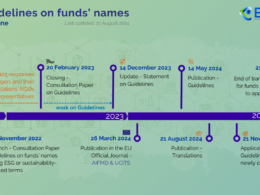A parliamentary committee in Australia has recommended the introduction of a “digital platform levy” targeting tech companies like Meta and Google, alongside a fund to help traditional news media diversify their revenue streams. The proposal is part of the second interim report from the joint select committee on social media and Australian society, released following Meta’s decision to end payment deals with Australian news outlets under the news media bargaining code.
The report suggests that the levy could function similarly to the 2% digital services tax already in place in countries like the UK and France. The aim is to compel social media companies to financially support public interest journalism, particularly as advertising revenues for traditional media continue to decline. The committee also calls for a short-term transition fund to assist smaller media outlets, digital-only publishers, and media organisations in underserved communities, enabling them to establish alternative income streams.
Prime Minister Anthony Albanese, speaking in August, emphasised the need for social media companies to meet their obligations, stating, “They shouldn’t be able to harvest the work of news organisations without compensating them. That work should be valued.”
The recommendations reflect the Labor-led committee’s concerns about the effectiveness of the current news media bargaining code, which was introduced in 2021 to ensure tech companies paid media organisations for news content. While Google and Meta initially complied, signing deals to pay Australian news outlets, Meta announced in March it would not renew its agreements. The government’s proposed levy is intended to secure revenue for media outlets without engaging in potentially prolonged disputes.
Sharon Claydon, the committee chair and Newcastle MP, said the report highlights the need for stronger regulatory measures to protect Australians from the negative effects of social media, including misinformation and declining access to accurate news. “This report highlights the urgent need for robust regulatory frameworks to protect Australians from the harmful effects of social media,” Claydon stated.
The report has also garnered support from Greens Senator Sarah Hanson-Young, who criticised Meta and other tech firms for evading Australian laws while benefiting from the country’s market. “The potential for Meta to remove news from their platforms will create a void for mis- and dis-information, while in turn their refusal to pay for the news it carries will impact Australian jobs and the quality of public interest journalism in Australia. Tech platforms must be held responsible for creating the very spaces that drive division, abuse and conspiracy theories.” she said, highlighting the need for strict regulations to hold tech platforms accountable for the content they host.
The committee’s report has faced opposition from Coalition members, who reject claims saying, “The news media bargaining code was designed to give government powerful tools to hold social media companies to account for the commercial benefits they gain from use of Australian news content. The Albanese government has been weak in its handling of this issue.”
As the final report approaches, the committee will also address issues such as online safety, the impact of social media algorithms, and user mental health, shaping future legislative action on digital platforms in Australia.

















